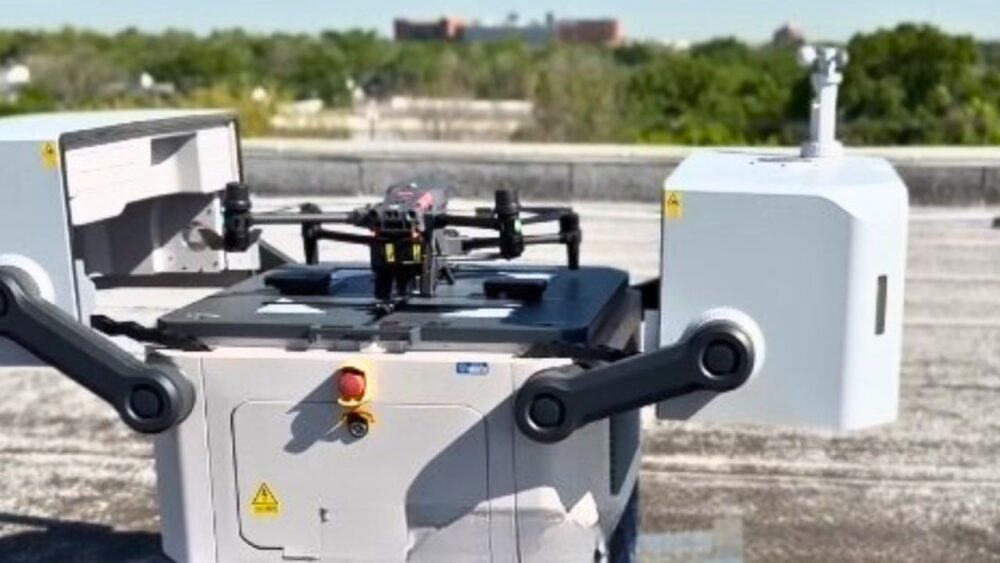The Arlington Police Department has expanded its Drone as a First Responder (DFR) program, becoming the first in Texas and among the first in the U.S. to operate drones remotely. This initiative results from a Federal Aviation Administration waiver allowing flights beyond the pilot’s line of sight.
The department, which initially used drones to address fireworks complaints during July 4 and New Year’s Eve, can now deploy them from two fixed docking stations to respond to in-progress calls, including burglaries, aggravated assaults, and missing persons cases.
Certified drone pilots at the Real Time Crime Center (RTCC) can launch drones to reach scenes faster than patrol vehicles navigating traffic, providing officers with real-time video.
“The faster we can put eyes on a situation, the safer the outcome for everybody,” said Arlington Chief of Police Al Jones.
“I want to be clear that DFR does not replace our traditional police response. But this technology presents significant opportunities for us to better serve our community, which is why we are embracing it.”
The FAA waiver enables drones to fly up to a 1.5-mile radius from the docks at up to 50 mph, a significant advancement over previous requirements that drones remain within a pilot’s visual range. During a Wednesday demonstration, Arlington Police showcased how drones can capture video of a suspect fleeing into a building, helping officers locate them and plan responses, 1080 KRLD reported.
“Our job is to deliver to those officers the best information we can as quickly as we can,” said Sergeant Eric Borton, noting the program’s focus on critical calls. “The better information we can give our officers while they respond to calls, the safer the outcome is for those officers, the suspects and for the community overall.”
The department has invested $50,000 in 15 drones and two docking stations, and 40 staff members have been trained and licensed by the FAA to operate them.
To address privacy concerns, Arlington Police have implemented strict safeguards: drones do not record video while in transit, only activate recording at a scene for legitimate law enforcement purposes, and are not used for general surveillance. Each flight is logged, documented, and subject to auditing to ensure compliance with local, state, and federal regulations.
“Arlington Police Department is committed to protecting the privacy of residents and visitors,” Jones said. “We’ve put a number of safeguards in place to make sure our [Drone as a First Responder] program is used appropriately.”


